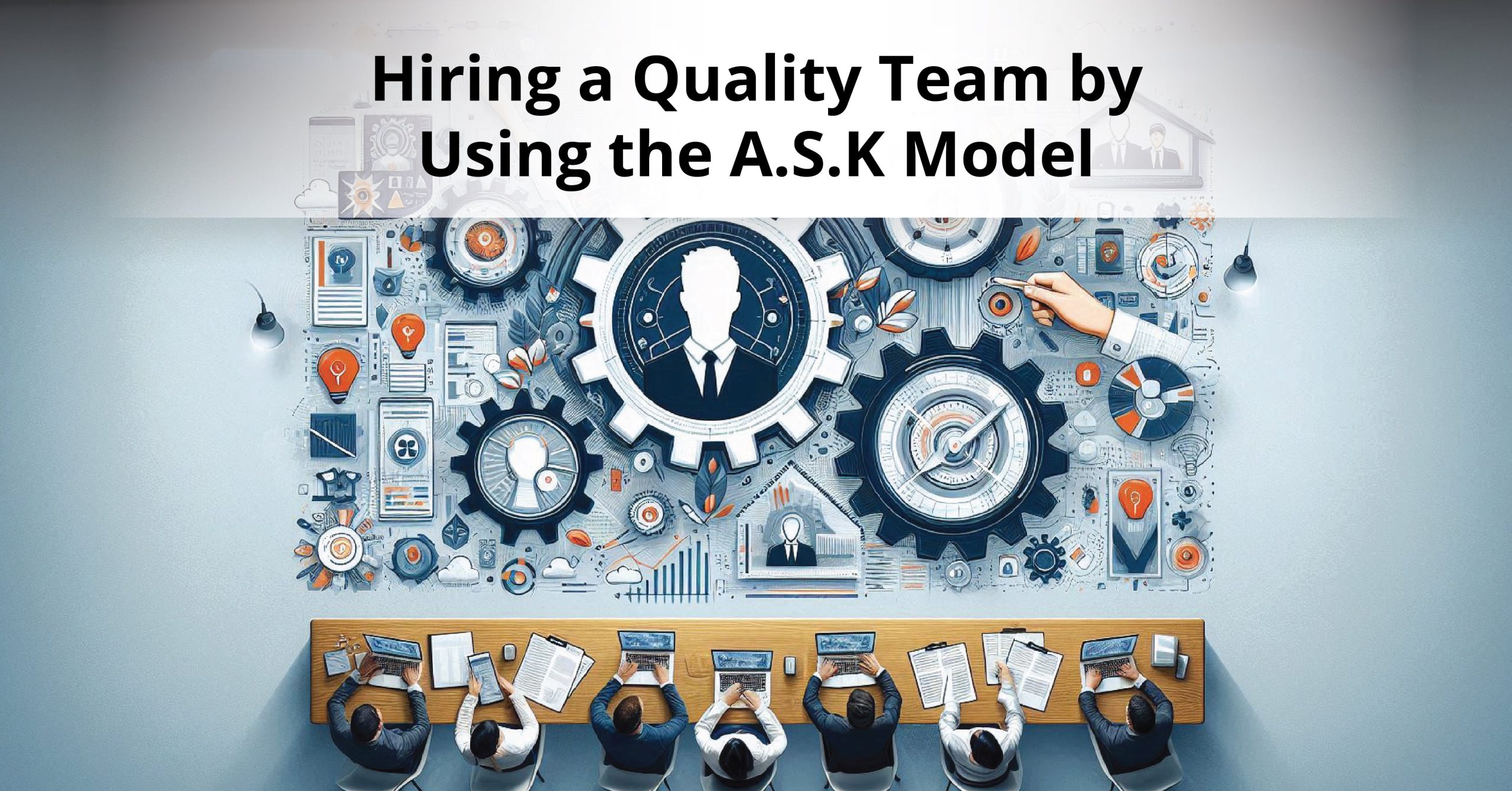Quality of hire is an essential hiring metric by which hiring professionals can understand the effectiveness of their recruitment process. The hiring teams will be able to judge their recruiting effectiveness based on whether or not they have the best hires for each position by using this metric.
A quality team in recognition of the attributes of A.S.K. would be in the right place to attain this level of excellence. This model helps in identifying not only technically sound candidates but also culturally fit and right-minded candidates. In this article, we’ll look at how to apply the A.S.K. model to hiring a quality team that will enable your organization to achieve success. The ASK model is a type of behavioral interviewing practice that some firms utilize in their recruitment process to judge whether a particular candidate is fit for the offered position and organization. Open-ended questions are going to be worded in the ASK model to inspire the candidate to answer in examples.
Through such a method, the candidate’s application of the skills and knowledge in a real-life scenario is evaluated by the interviewer. Contextual fit with organizational values and culture is assessed. This model would help assess how the candidate fits a role as a whole and what potentiality exists for his or her contribution to organizational success.
The A.S.K Model
Attitude
When hiring for a great team, attitude is probably the single most critical and toughest element to evaluate. A person with the right attitude will be motivated, adaptive, and a team player. Here is how you can assess this:
Behavioral Interviews: Use questions to reveal how the candidate handled issues in the past and how well they have dealt with issues while working with others and concerning change. For instance, ask the person to explain the time they had to manage a difficult team member and to adapt to new processes.
Cultural Fit: Decide if the candidate’s values will fit with your organization’s culture. Try to pick this up through more casual conversations or ask them how they would prefer to work or be managed.
References: Contact one or more of the candidate’s former managers or co-workers to learn more about their attitude and work ethic.
Skill-based Evaluation
Skills are the more tangible qualities a candidate has to offer. In a quality team, these could be:
Technical Proficiency: This would include specific software, tools, or methodologies that you necessarily need to know to conduct business in your industry. For instance, a quality analyst should be fluent with SQL for analyzing data or familiar with testing frameworks.
Analytical Skills: Ability for data analysis, spotting trends, and development of meaningful conclusions for ensuring the quality of the product and process improvements.
Communication: An effective team member must be in a position to communicate sufficiently in the documentation of issues and coordination with other departments.
On this, the attainment can be evaluated as follows:
Technical Evaluation: This can be attained by practical tests or assignments, which entail estimating the technical ability of the candidate. A test in coding, for instance, will be necessary for the recruitment of a software quality engineer, while a test of a given case study is important in recruiting a process improvement specialist.
Portfolios: Review past works, projects, or case studies to attest that the candidate is skilled in practice.
Knowledge Check
Knowledge refers to the familiarity of related industrial standards, regulatory requirements, and best practices. This may include a quality team:
Industry Regulations: It could be ISO or FDA, depending on the nature of the business, or any other regulations regarding one’s industry.
Quality Management Principles: Knowledge of Six Sigma, Lean, or TQM can benefit you.
Product or Service Knowledge: In-depth knowledge of the product or service that your company provides can help determine what issues the quality team may come looking for.
Interview Questions: Questions that challenge the understanding of relevant regulations and standards; for example, “Can you explain the key components of ISO 9001?” or “How would you carry out a quality management process in adherence to principles of Six Sigma?”
Certifications: Appropriate certifications, such as Six Sigma Green Belt and CQE (Certified Quality Engineer), might be an indicator of the candidate’s knowledge base.
Building a Balanced Team
While each member of your quality team should be outstanding in attitude, skills, and knowledge, these attributes should be balanced across the team. Some roles may require a stronger emphasis on technical skills, while others might emphasize interpersonal skills and attitude. Using the A.S.K. model helps ensure that you have a well-rounded team capable of tackling different challenges to drive continuous improvement.
Conclusion
In its ability to assist in quality team selection, it should be known that the A.S.K. model enables the assembly of not only knowledgeable, highly competent technical professional teams but also those who are armed with the right attitude to work well within a dynamic environment that involves teamwork. By steering these three focus areas, you can build a team that’s not just competent at the technical level of the role but will also have a positive impact on the culture and long-term success of your company.
